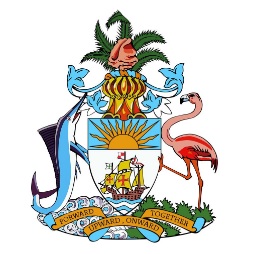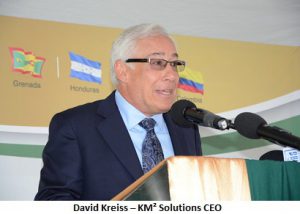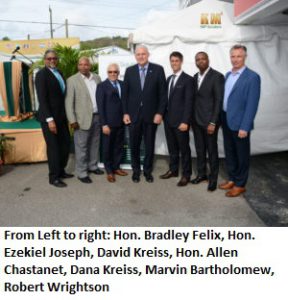Go Lean Commentary
It could have been so good for the country, but the leaders had no vision and so the people suffered! 
The summary of the Caribbean Single Market & Economy (CSME) effort is that an integrated regional economy always grows! But the Bahamas suffered the malediction warned in the Bible scripture in Proverbs 29:18 (King James Version):
Where there is no vision, the people perish…
There is the need to look back at the Bahamas – and other Caribbean countries that waived off the initiative – and do a …
“Coulda, woulda, shoulda”.
What could have been accomplished had the progressive Single Market initiative gone forward, as it succeeded elsewhere?
How do we now Right that Wrong?
This is the continuation of a commentary series from May 2017 that considered how to “Right a Wrong”. Surely, missing out on the opportunity to transform Bahamian society is a “Wrong”. The ship (regional integration) sailed … without us! Other communities – think the European Union or EU – that integrated, grew, progressed and optimized – migrants are dying to get there – while the Bahamas regressed! So there are lessons that we need to glean from the effort to “Right our Wrongs”. Others can benefited, so can we! The full 2017 series were as follows:
- Righting a Wrong: 2008 Housing Crisis
- Righting a Wrong: Puerto Rico Bankruptcy
- Righting a Wrong: Volkswagen Emissions Crisis – Effect on US Dealers
- Righting a Wrong: Takata Air Bags
As related in the first submission in the series, these “Wrongs” relate to bad actions and inaction by different actors. The Bahamas Intelligentsia was vocal in their opposition to CSME in 1993 – see a prominent White Paper at the time in the Appendix below. But since then, the societal indices in the Bahamas has only pointed to failure, regression and abandonment. The summary is that this country adopted a bad economic policy – by waiving off CSME – to preserve low-skilled jobs. “Righting that Wrong” would detour from this lack of economic planning and allow the country to finally reboot, reform and transform.
The book Go Lean…Caribbean addressed CSME from the beginning; starting with the opening assessment of the State of Caribbean integration. The book detailed CSME on Page 15 as follows:
What is the CSME?
The initials refer to the Caribbean Single Market & Economy, the attempted integrated development strategy envisioned at the 10th Meeting of the Conference of Heads of Government of the Caribbean Community which took place in July 1989 in Grand Anse, Grenada. The Grand Anse Declaration had three key features:
- Deepening economic integration by advancing beyond a common market towards a Single Market and Economy.
- Widening the membership and thereby expanding the economic mass of the Caribbean Community (e.g. Suriname and Haiti were admitted as full members in 1995 and 2002 respectively).
- Progressive insertion of the region into the global trading and economic system by strengthening trading links with non-traditional partners.
What was the hope for CSME?
Whereas CariCom started as a Common Market and Customs Union, to facilitate more intra-region trade, the CSME was intended to effect more integration of the economies of the member states. But this turned out to be mere talk, fanciful murmurings of politicians during their bi-annual Heads of Government meetings. No deployment plans ever emerged, even though up to 15 member-states signed on to the accord; (and 10 more as “Observers” only).If this effort was started again, what would be done differently?
Make it real! There should have been funding first, then also a proposed constitution, an interstate compact for the US Territories participation, delivery schedules, implementation plans, and even project teams. Many “low hanging fruits” should have been “picked” and their successful deployment lauded throughout the region. Then there are the big projects, the heavy-lifting for the region: job creation, improved governance, security, emergency management, currency & monetary ascension, and support/promotion for many NGO’s in the region.
This Go Lean book was published in November 2013, projecting verbiage like “the Caribbean is in Crisis; alas a crisis is a terrible thing to waste” (Page 8). According to many observations in the Go Lean blogs-commentaries – see below – the Bahamas crisis is dire, in need of immediate remediation, yet the leaders are continuing to waive-off; see a news article here:
Title: Bahamas maintains stance against CSME
By: Royston James
The Bahamas will maintain its stance against joining the Caribbean Single Market and Economy (CSME), despite increased pressure from certain regional heads to expand the initiative.
The CSME seeks to create a single, enlarged economic space by removing certain restrictions, the result of which would allow the free movement of goods and services, people and capital and technology.
“In spite of what you may read in the newspaper, we have discussed CSME, [but] The Bahamas is not and will not be a part of CSME,” Prime Minister Dr. Hubert Minnis said upon returning from Jamaica on Saturday.
“The Bahamas will not allow the free movement of people within our boundaries. So we are not a part of CSME. That must be clear, so that you do not feel that [because of] what has transpired there that Caribbean nationals would be able to move into The Bahamas quite regularly.
“We have our rules, our laws, and they will continue to apply.”
Full implementation of the CSME was high on the agenda of the CARICOM meeting held last Thursday. At least three CARICOM heads called for a review of the program by its member states and for regional leaders to find the political will to see the program expanded and made more efficient.
Addressing CARICOM, Barbados Prime Minister Mia Mottley opined that “psychological impediments and the closed mindsets in some quarters of officialdom” can be attributed to the slow progress of the CSME.
Antigua and Barbuda Prime Minister Gaston Browne and CARICOM Secretary General Irwin LaRocque also pushed for more to be achieved. CARICOM Chairman and Jamaican Prime Minister Andrew Holness said at a press conference following the CARICOM meeting that a special meeting on CSME will be held in Trinidad and Tobago in November.
Under the first Christie administration, the CSME issue featured prominently in local debates with strong opposition to The Bahamas joining the initiative being expressed in many quarters. Debate died down only after the government at the time publicly announced that The Bahamas would not join any bloc that would lead to the free movement of people in the country.
Source: Posted July 9, 2018 retrieved July 10, 2018 from: https://thenassauguardian.com/2018/07/09/bahamas-maintains-stance-against-csme/
The recommendation of the movement behind the Go Lean book is to confederate now!
This is the purpose of the book Go Lean…Caribbean, to help reform and transform the societal engines of the Bahamas and all 30 member-states of the Caribbean region. The book serves as a roadmap for the introduction and implementation of the Caribbean Union Trade Federation (CU). The Go Lean/CU roadmap applies best-practices for community empowerment and features these 3 prime directives, proclaimed as follows:
- Optimization of the economic engines to grow the regional economy to $800 Billion & create 2.2 million new jobs.
- Establishment of a security apparatus to ensure public safety and protect the resultant economic engines.
- Improvement of Caribbean governance to support these engines.
Had the CU Single Market been in force, the arguments among the people would have been “which of the 2.2 million new jobs would land in the Bahamas”. Rather, according to the foregoing news article, the topics du jour is how to keep poorer people away from the measly resources in the Bahamas. This is happening while more and more Bahamian professionals are fleeing the islands for foreign shores and organizing their affairs in the Diaspora. See related photo here:

According to the Bahamas Prime Minister, the overriding issue with CSME is the Free Movement of People. The country would rather maintain its independence than to succumb to a new “free movement” regime whereby people can freely move from one Caribbean member-state to another for any activity: live, work or play. This is the defect of CSME!
Lesson learned!
The Go Lean roadmap is designed to elevate the Caribbean region, to be better destinations to live, work and play. The movement therefore fosters strategies, tactics and implementation to better foment the regional workplace. The roadmap asserts that Caribbean communities need the Free Movement of People under controlled employment rules-conditions. This is why the CU Trade Federation is a graduation from the CSME – something better. We accomplish Free Trade and Free Movement of People for Domestic (Intra-region) Tourism, but controlled Freedom of Movement for jobs … based on Labor Certification. Here is how the Go Lean book describes the Certification process:
CU Labor Relations Board
This agency coordinates the activities of labor certifications, labor unions and other organizational dimensions in the region. This effort will be collaborated and in cooperation with member-state Labor Relations agencies. The CU‘s focus will be towards interstate activities and enterprises, as opposed to intra-state.Labor Certification is an important role for this agency as it requires monitoring the labor needs of the region to ascertain where skills are needed and where and who can supply the skills. The certification role involves rating the level of expertise needed for job and rating workers skill sets. (Consider a 10-point grading system for positions and personnel, where “apprentice” level ranges from 1 – 3, “journeyman” level ranges from 4 – 6, and “master” ranges from 7 – 10). This certification role is vital to the strategy of preserving Caribbean human capital in the region, even if this involves some movement among the member-states. [When a high skilled job becomes available, it has to be rated so that if no local talents are available, workers with qualifying ratings in other CU member-states can apply and be engaged].
When a labor union from one country wants to represent workers in another country, this union will have to be registered and administered by this agency for the CU.
Outside of the labor unions, this agency also marshals the causes of labor abuses, job discrimination and equal opportunities for minority groups, women and persons with disabilities; [in conjunction with related agencies in the member-states].
This agency also maintains a Project Management Office to deliver on regional labor-specific projects. This includes training programs, continuing education and e-Learning schemes among the non-matriculating population. This agency will therefore be the regional authority for “on-the-job” training schemes.
This approach is more technocratic than the status quo, and allows the Caribbean region to embrace the benefits of a Single Market without endangering low-skilled jobs. Sad, the Bahamas is suffering from decline trying to preserve low-skilled jobs!
This issue was also the underlying complaint for Great Britain / United Kingdom desiring to exit the EU; this refers to Brexit. See the aligning issue in the Appendix VIDEO below. Again, lesson learned!
The points of effective, technocratic stewardship for a regional labor market have been elaborated upon in previous blog-commentaries. Consider this sample:
| https://goleancaribbean.com/blog/?p=14954 | Overseas Workers – Not the Panacea |
| https://goleancaribbean.com/blog/?p=14242 | Leading with Money Matters – Follow the Jobs |
| https://goleancaribbean.com/blog/?p=14191 | Scheduling in the ‘Gig Economy’ – The New Job Source |
| https://goleancaribbean.com/blog/?p=8377 | Fallacy of Minimum Wage |
| https://goleancaribbean.com/blog/?p=5759 | Pressed by Debt Crisis, Doctors Leave Greece in Droves |
| https://goleancaribbean.com/blog/?p=5597 | Wage-Seeking Principles – Market Forces -vs- Collective Bargaining |
| https://goleancaribbean.com/blog/?p=1698 | Professional STEM Jobs Are Filling Slowly |
What should be the advocacy priority of a technocratic regional government? Low-skilled workers? Professional classes? High Net-Worth individuals? The answer: All of the above!
Overall, the Go Lean book stresses the community ethos, strategies, tactics, implementations and advocacies to reform and transform the economic, security and governing engines of Caribbean society. This effort will be technocratic! It will preserve low-skill jobs, foster professional careers and invite High Net-Worth individuals to bring their Time, Talent and Treasures to our region. This vision was pronounced in the opening Declaration of Interdependence (Pages 12-14) with these statements:
xi. Whereas all men are entitled to the benefits of good governance in a free society, “new guards” must be enacted to dissuade the emergence of incompetence, corruption, nepotism and cronyism at the peril of the people’s best interest. The Federation must guarantee the executions of a social contract between government and the governed.
xii. Whereas the legacy in recent times in individual states may be that of ineffectual governance with no redress to higher authority, the accedence of this Federation will ensure accountability and escalation of the human and civil rights of the people for good governance, justice assurances, due process and the rule of law. As such, any threats of a “failed state” status for any member state must enact emergency measures on behalf of the Federation to protect the human, civil and property rights of the citizens, residents, allies, trading partners, and visitors of the affected member state and the Federation as a whole.
xix. Whereas our legacy in recent times is one of societal abandonment, it is imperative that incentives and encouragement be put in place to first dissuade the human flight, and then entice and welcome the return of our Diaspora back to our shores. This repatriation should be effected with the appropriate guards so as not to imperil the lives and securities of the repatriated citizens or the communities they inhabit. The right of repatriation is to be extended to any natural born citizens despite any previous naturalization to foreign sovereignties.
xxiv. Whereas a free market economy can be induced and spurred for continuous progress, the Federation must install the controls to better manage aspects of the economy: jobs, inflation, savings rate, investments and other economic principles. Thereby attracting direct foreign investment because of the stability and vibrancy of our economy.
xxvi. Whereas the Caribbean region must have new jobs to empower the engines of the economy and create the income sources for prosperity, and encourage the next generation to forge their dreams right at home, the Federation must therefore foster the development of new industries …. In addition, the Federation must invigorate the enterprises related to existing industries … – impacting the region with more jobs.
Yes, the purpose of this commentary is to project the better plan for reforming and transforming the Caribbean societal engines. Yes, we need jobs, but doubling-down on bad economic policy to preserve low-skilled job is bad for society … and the low-skilled worker. Automation and globalization would diminish those jobs further anyway as time and technology progresses; consider the eventual example of robots performing construction in this previous blog-commentary from the Go Lean movement.

Now is the time for all stakeholders – leaders, citizens, low-skilled workers and professionals – in the Caribbean to lean-in for the empowerments described here-in and in the book Go Lean … Caribbean. We must do better that in the past; we must Right the Wrong of past generations “missing the boat” and benefits of regional integration. This is how we can make the Bahamas and all of the Caribbean a better place to live, work and play. 🙂
Download the free e-Book of Go Lean … Caribbean – now!
Sign the petition to lean-in for this roadmap for the Caribbean Union Trade Federation.
—————
Appendix – No Caricom Without Referendum
By Sir Randol Fawkes – June 1993
I often wondered what The Caribbean Community’s Common Market (CARICOM) was up to. But now that I know, I wish to sound a warning to all true Bahamians to hold fast to the “Christian values and the Rules of Law” as enshrined in the Preamble to our Independence Constitution of July 10th, 1973, because some power-hungry politicians to the South are planning to invade our homeland and to steal our birthright away.
Simple enough? Dictatorship is always simple, monosyllabic and quick. Under a democracy we have a right to be properly briefed on CARICOM before being required to vote, “Yes” or “No” on whether the Bahamas should become a full Member State of the Caribbean Community’s CARICOM. The Rt. Hon. James F. Mitchell further expostulated, “One flag means we speak on the podium of the United Nations with one clear voice. One voice means one passport, one citizenship and all that flows from a single citizenship. Secondly, one Ministry of Finance is essential to provide the economic development which our people crave. This union will need to show results, and this authority which negotiates and secures financing must be responsible for the repayment of that finance.”
Make no mistake about it, these Caribbeans who will descend on Bahamian soil in July offering CARICOM as a panacea for all ills, intend to destroy our national flag: the Black, the Gold and the Aquamarine; silence our National Anthem, Lift Up Your Heads to the Rising Sun Bahama land, abolish Bahamian citizenship and our passports; eliminate Bahamian autonomy and thereafter superimpose upon us a leviathan dictatorship with a network of cells throughout the Caribbean – all done without first a people’s forum in which all voices – pro and con could be heard and ultimately expressed in a Constitutional Referendum.
…
Source: Retrieved July 10, 2018 from: http://www.sirrandolfawkes.com/yahoo_site_admin/assets/docs/No_Caricom_Without_Referendum1.216134242.pdf
————–
Appendix VIDEO – Brexit: UK-EU freedom of movement ‘to end in March 2019’- BBC News – https://youtu.be/qzlUNIJ0f_0
BBC News
BBC News
Published on Jul 27, 2017 – New immigration system will be in place by March 2019 when the free movement of people between the EU and the UK ends, a minister has said.
Immigration Minister Brandon Lewis was speaking as the government commissioned a “detailed assessment” of the costs and benefits of EU migrants.
That report is expected in September 2018, six months before Brexit.
Home Secretary Amber Rudd earlier reassured firms there would be no “cliff edge” on immigration. Writing in the Financial Times she said the UK would continue to attract “the brightest and the best” migrants from around the world – with the newspaper suggesting a work permit system for Europeans was being considered.
The CBI said businesses “urgently” needed to know what EU migration would look like, both in any “transitional” period after March 2019 and beyond. Ministers have also promised an “extensive” consultation to listen to the views of businesses, unions and universities.
- Category: News & Politics
- License: Standard YouTube License








 Contact Centers require art and science! See the best practice described in the Appendix VIDEO below. (Though humorous, the strong point is made: there is an art to “blending in”).
Contact Centers require art and science! See the best practice described in the Appendix VIDEO below. (Though humorous, the strong point is made: there is an art to “blending in”).